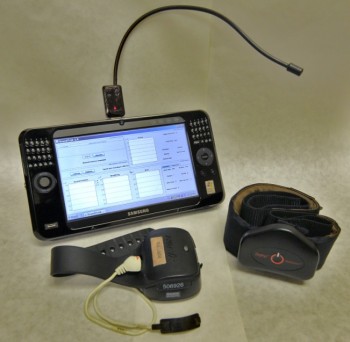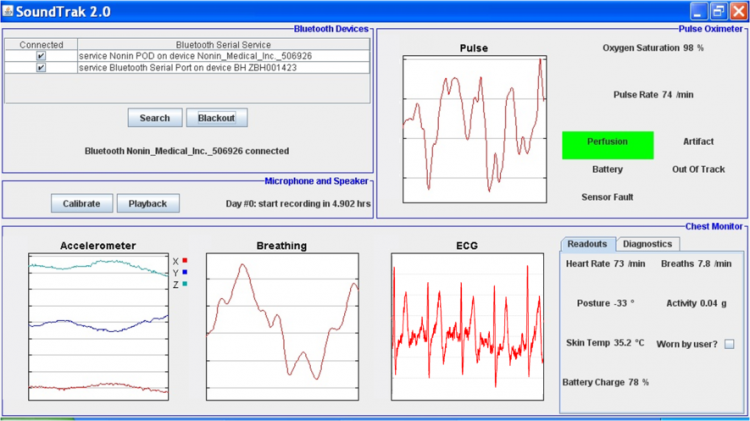SoundTrak: A Home-based Sleep Monitoring Solution
Sleep-disordered breathing, including obstructive sleep apnea, affects a large segment the population and has a myriad of sequelae including hypertension, neurocognitive impairment, daytime sleepiness, premature death, and cardiovascular morbidities. Children with sleep-disordered breathing often suffer from poor academic performance, insulin resistance, and attention-related problems.
and has a myriad of sequelae including hypertension, neurocognitive impairment, daytime sleepiness, premature death, and cardiovascular morbidities. Children with sleep-disordered breathing often suffer from poor academic performance, insulin resistance, and attention-related problems.
Despite increasing awareness of sleep-disordered breathing, it has been estimated that 93% of women and 82% of men remain undiagnosed, largely due to issues associated with the cost, complexity, and availability of laboratory polysomnography (PSG), the current standard for diagnosing sleep-disordered breathing.
Barron Associates, in collaboration with the University of Virginia, is developing the SoundTrak system, a low-cost sleep monitoring technology for use in individuals’ home environments to noninvasively, ergonomically, and automatically acquire and analyze high-frequency inspiratory sound data pertaining to obstructive sleep-disordered breathing. The SoundTrak system collects low- and high-frequency sound data via a microphone and a small, highly-portable computing base station. Breathing movements are measured by the system, enabling inspirations to be detected and the patient’s sleep sounds to be discriminated from other sources. The SoundTrak system also collects wireless pulse oximetry oxygen saturation (SpO2), electrocardiogram (ECG), body posture, activity, and skin temperature data, and relays that information in real time to the SoundTrak base station. Relative to many other home sleep monitoring technologies, the SoundTrak system offers the advantages of low cost, ease of use, comfort (the user is untethered), and ready availability.

